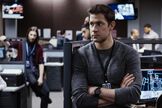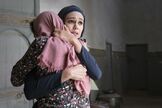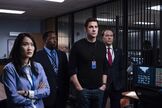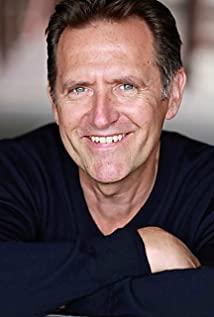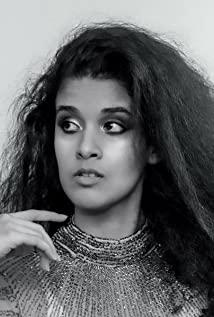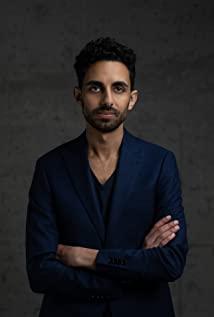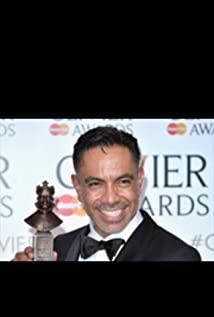The TV series version of Jack Lane is closer to the old-school main theme action anti-terrorism film of the 1990s. The focus of the drama story is not placed on the suspense layout, and more is to look at the overall situation through a large number of perspectives from both sides. To show the audience the whole event and the development process of specific actions from the angle of view, the suspense will be slightly insufficient. There are some details in the story, such as video games that have appeared many times, and I can't grasp it well, and a certain story line is also somewhat inexplicable, but overall it is not lost. The best part of the whole play is that the narrative rhythm is very good, smooth but enough to catch people, so that such a traditional and uncomplicated story is fascinating. It is also worth mentioning that the amount of action scenes is unexpectedly large and the shots are extremely tense. Both the pictures and the scenes are quite cinematic, which is very surprising. It’s just that the ending of the series was too rushed, and the story of this season was hurriedly closed. I don’t know if there is something wrong with the production. It can be said that this ending has reduced points for this series a lot, which is really a pity.
This drama is completely different from the current mainstream anti-terrorist dramas with a focus on homeland security. Homeland will spend a lot of pen and ink to describe the intelligence and psychological warfare of various parties. It is a drama known for its literary drama. Jack Klein focuses on showing the implementation and development process of an event or action from a global perspective. It can be said that the proportion of literary drama will be slightly lower. Another difference is that the country is a slow-paced drama series, through a lot of foreshadowing and then inadvertently throwing a hot spot to detonate and advance the plot. On the whole, Jake Klein’s rhythm is much smoother, using a relatively restrained but still tension-free way to gradually advance the plot. Only from the perspective of perception, I personally think that Jake Klein is slightly better than the country. Of course, this is largely due to the narrative of the series using a global perspective. The audience can clearly understand every step and plan of the pros and cons. In order to create an atmosphere of suspense, the perspective is more focused. On the protagonist's side.
The story of the play is unfolded in a very plain and traditional way. In the first episode, a newly appointed officer directly leads to the main plot of the season during the interaction with the protagonist, and then it takes half of the episode to briefly explain the main story. Characters and background quickly enter the subject. After that, the second episode immediately introduced the villain's perspective, and then gradually unfolded the plot through the synchronization and equalization of the pros and cons.
The story as a whole is not new, and there is no such complicated way to package it. Although each episode more or less adds some flashbacks and interludes, the narrative is still very traditional. The good thing about the story is that it is relatively pure. Almost all the characters serve the main body of the story. They will not directly set aside the plot to portray a character for a long time, including the protagonist and the villain. The shaping of each key role is the same. Especially the protagonist's past that was thrown out in the first episode. This suspense is still closely related to the story of this season when the last episode is announced, rather than simply shaping the protagonist.
The downside is actually the continuation of the previous advantages. It is this way of shaping characters that makes many characters in the series appear very flat, or lack sufficient depth. The protagonist, the protagonist boss, and the heroine are all like this. Basically, only a background setting and a simple character character are set. No further exploration is made in this setting, and the villain BOSS with the best character depth is also dealt with in the end. Very hasty. But one thing worthy of recognition is that the relationship between the two pairs of characters, the villain brothers and the protagonist, and the boss and the opponent drama in the series are very interesting. This large number and very charming depiction of the man drama also makes this drama even more attractive. Old school and traditional.
Another thing I have to mention in the story is the story line of the drone brother. This character and his story are introduced from the third episode. In the third episode, there are a lot of seemingly unrelated descriptions of this new character, and then the ending uses a clever and dramatic way and the main body of the story. In connection, this way of writing is very good for homeland security. But then the story of the little brother began to completely deviate from the main line of the story and became a separate story line, and it was closed in the sixth episode, and the character in the final two episodes completely disappeared. This play is called Jack Klein, not Eye of the Sky or other names. This method of breaking away from the main line and opening the story alone is really inexplicable. The screenwriters want to do some in-depth discussion and description. Obviously, there can be a more clever and reasonable form of expression. In fact, from the perspective of the plot, a certain amount of space was left in the second half of the plot for the drone brother to participate again or even play an important role, but the screenwriters did not seem to let the plot develop in this direction at all, but chose to take him out alone. Speaking, it also seems quite strange.
The problem with the ending of this season is very serious. I don't know if there was a problem with the production. The story of the season ended suddenly like going to the market. In terms of plot volume and drama, the ending is actually enough to hold up the third act of a similar movie, and it is enough to be exciting. But as a series, this narrative rhythm is completely broken, especially when compared with the smooth and relaxed rhythm before the series.
Although the ending is terrible overall, the performance of the action scene is still very good, the protagonist and the villain are chasing extremely tightly, and the last-second bomb disposal is also shown in a calm and dramatic way. The action scenes and field operations of this show are significantly higher than the specifications of the TV show in terms of production and shooting. Although some details are difficult to scrutinize, they are really exciting, and the scenes are also very rich and dense. From the first episode of the US military and The large-scale terrorist conflict to the final one-on-one chase between the protagonist and the villain is overwhelming. The literary drama of this play may lack a certain degree of suspense and drama, but it is enough to hang people's appetite in terms of martial arts, which is also a very special place of this play.
In addition, the plot of the ending of this season is almost the same as the two episodes of criminal psychology. I saw that the protagonist thought of criminal psychology instantly when analyzing the villain’s actions. I don’t know if this content was directly adapted from the original novel. , If not, the similarity of the plot is too high.
Generally speaking, if you are interested in a series of this kind of theme, it is still worth watching, but that's it. This is a drama that is worth watching, but it is not excellent. The production is already excellent enough or even beyond expectations. If the script can be further polished in the follow-up, this drama will definitely be able to go to the next level.
View more about Tom Clancy's Jack Ryan reviews




